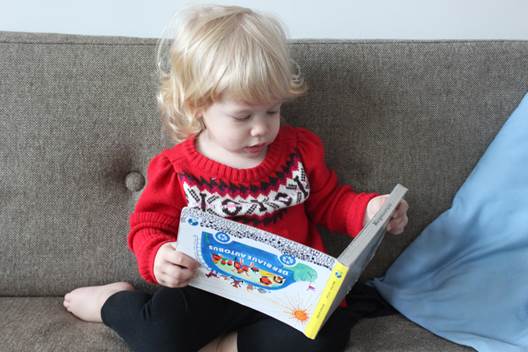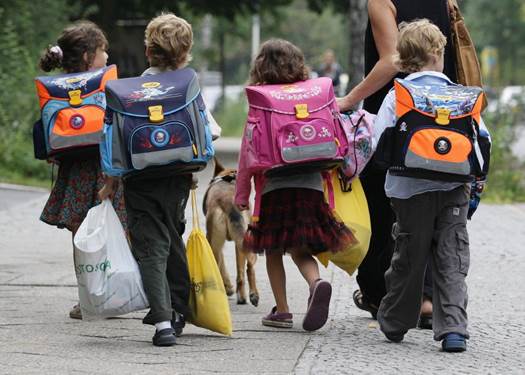German parents train their children
to be independent in a skillful and efficient way.
Others can have different thoughts about
the German, but to me, like a country where boys sometimes have chances to know
the city, Germany has made quite an impression on me, and sometimes, it’s a
surprise.
Unlike the subtle and elegant French, the
enthusiastic Italian, the apathetic but humorous English, the outgoing Holland,
the German could bring us a bit disappointment for their coldness. Moreover,
the German is believed to have their lifestyle and working style kept under
strict discipline, to be independent and reliable. The German can be cool with
you at first but, in fact, they have plenty of hospitality.
Having lived and worked in Germany for 4
years, I like the country for its view, people, etc… I also have some interest
in the way they educate their children.

German
kids always do things independently.
The German thinks that every child has its
pros and cons and its own growing way. For that reason, if a child has a slow
development in one behavior, its parents will never compare it to others in
order not to make it feel weak and discouraged.
German parents teach their children to be
independent in every little thing they do since their early age, while some
moms hate the fact that their preschool kids are around them all day, and they keep
telling their children what to do, or often scold at them like “Stay away! I’m
cooking/baking” or “Go play with your father. I’m cooking the vegetables”…,
German moms never refuse a good chance like that to train their children.

German
children have to carrying their stuff on their own.
When German moms are baking, their children
will be arranged to stand next to them and watch. They will sometimes give
their children some instructions and seduction so that the children will join
baking with them. They don’t say: “Do not touch it. Let me do it quickly”. Moms
really can do it quickly, but children will never be able to learn anything as
their parents keep doing things for them.
So, when you do the laundry, let your
children put their clothes in the washing machine; when you clean the house,
give your children a towel, point at an area and say “This is what you need to
do”… Children are quick learners and they can remember things for a long time,
so all you need to do is to give them an instruction and they’ll do it on their
own next time.

German
parents teach their children to be independent in every little thing they do
since their early age.
Another thing that you should learn from
the German about their child educating is to teach your children to eat
independently and healthily.
While some moms have to carry their children
in their arms to make them eat, or jump up and down, do everything just to make
their children eat foods, German moms apply rules right in the first meal. They
teach their children to sit and eat with them, and the children have to wait
till everybody come up to start eating. Because of that, there’s nothing to be
surprised at a one-year-old German who can eat independently; if they can’t eat
food by their spoons, they’ll use their hands. At first, they can give food to
their noses, ears, but later it will go to their mouth anyway…

German
kids eat foods by themselves.
Teaching children to follow the rule and to
be independent does not mean forcing them to follow your rules. The German
don’t teach their children to become robots or lacking in childhood affection,
feelings, or only focus on the success… German parents create the standard that
their children need to follow in their own way.
German moms will never give the complement
like: “You’re the best”, “You’re the number one”…If they want to raise their
children for their children, they will make it specifically by mentioning their
achievement, character’s advantages, or their willing spirit…
For example, when children finish
collecting their toys, which their mothers have told them to do, if their moms
want to encourage them, they will say: “I’m glad you did your job”…
Besides, the German is believed that: a
polite person always arrives on time. Therefore, since German children were
young, they have been taught to be on time.
For example, if parents decide to have a
picnic at 8 a.m. or sooner on the following day, children will be on time to
leave for the picnic. In Germany, there’s no way parents carry all the stuff
and children just walk with their white hands. German children from the ages of
2 to 3 have to carry their stuff; their parents won’t carry anything for them
unless they’re sick.